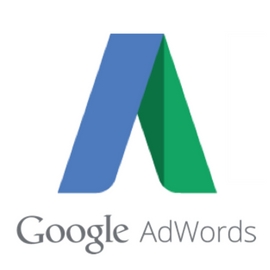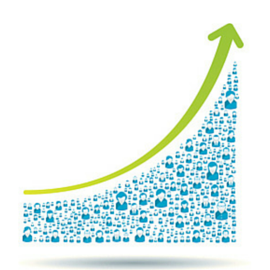You want to take a stab at online advertising, but you’re unsure whether to outsource it or do it yourself.
This is a common concern for many dentists. They believe there’s great opportunity to invest in online advertising, but they don’t have the time or know-how to get started.
Below, you’ll learn about the two different forms of Google AdWords and the pros and cons of each.
![]()
 Google AdWords vs. Google AdWords Express
Google AdWords vs. Google AdWords Express
Google Ads is the most popular online advertising platform. It’s a pay-per-click (PPC) service that allows you to create ads that are displayed on Google’s ad networks. The service enables you to set a budget for advertising and only pay when someone clicks on your ad.
In an effort to attract more advertising partners, Google added a service called “AdWords Express.” This is a stripped-down version of AdWords that automatically manages your campaigns, eliminating the need for ongoing maintenance.
The key benefit Google advertises for the Express service is it saves you time. After all, you already have a full-time job serving patients! Express differs from traditional AdWords in the sense that it caters to local businesses that see the benefits of online advertising but don’t have the experience or time to invest in it.
For instance, in traditional AdWords, you must identify the right keywords, set an ad budget, and manage your campaigns on a regular basis. With Express, Google does all those things for you.
While there are several pros to using the Express service, it also has many drawbacks.
On average, businesses make $2 in revenue for every $1 they spend on Google AdWords.
The Cons
1. Usability
A fully-optimized PPC campaign can be extremely complex, especially when targeting a local audience for a specific service. The overarching problem with AdWords Express is that assumptions are made about your practice. And assumptions are where PPC campaigns get into trouble.
For example, it can be dangerous to rely on Google’s suggested budget. Research should be conducted to identify what an appropriate budget looks like on a monthly basis. After all, marketing an orthodontic practice is far different from marketing a department store.
2. Targeting
Targeting is one of the most important components of a successful AdWords campaign. Traditional AdWords allows you to, literally, draw your geographic targeting around your jurisdiction. This gives you very precise targeting. Express decides your reach for you.
Which begs the question: Will you be serving ads to people who would likely not make the drive to your office?
Another major concern with Express is query targeting. You choose your category (i.e. cosmetic dentistry), and then Google instantly chooses your targeted keywords. Meanwhile, traditional AdWords allows you to eliminate inefficient or unwanted terms, which can deplete your budget with little or no result.
3. Automation
A system that fully automates your advertising may sound nice. But, remember, much of what you spend is predicated upon the keywords you target. And with Express, you don’t have access to keywords. Google assumes what you want to target. These assumptions can be costly. You could pay far too much per click, or worse, target people who aren’t even qualified for your practice.
AdWords bases your ad position and cost per click on several factors:
- Ad quality
- Competitors’ ad quality
- Keyword relevancy
- Maximum bid per keyword
- Landing page quality and relevance
Even though Google does the work for you, all of these factors must tie together to run an efficient, patient-generating campaign.
What’s the biggest problem with AdWords Express? You’re relying on a computer algorithm.
And while the algorithm is smart, it’s seriously flawed.
The top three paid ad spots get 41 percent of the clicks
The Pros
 1. Usability
1. Usability
AdWords Express is very easy to use. You can set up a PPC campaign within a matter of minutes, and then Google handles the rest. No need to think about which keywords to target. Or how much to bid per keyword. Google will recommend a monthly budget and then decide how much you pay per click based on its bid auction model.
2. Targeting
With traditional AdWords, you manually segment your ads by country, region, or state. With Express, Google automatically serves your ads to individuals based on your office location. Additionally, Google will target your ads to a category of your choosing. So if you are a cosmetic dentist, your ads will show up for a broad range of keywords related to cosmetic dentistry.
3. Automation
With Express, you can kiss keyword analysis goodbye. No need to wade through keyword tools and Excel spreadsheets before launching a campaign. Google automatically adjusts how much you pay per ad click, based on competition and your category selection. Moreover, Google will continually alter your keywords to ensure relevancy.
Do it Yourself or Hire a Provider?
When it comes to PPC advertising, saving time doesn’t always mean saving money. While AdWords Express is an easy, do-it-yourself option, the lack of control you have over your campaigns can be costly.
If you decide to go the traditional AdWords route, and manage it yourself, it’s important to know the metrics that determine a successful campaign. If you don’t have experience with PPC advertising, you can run through your budget quickly, while generating little or no new patients.
This is why you might consider hiring a PPC provider. If you do decide to outsource, it’s important to vet your prospective provider. There are many things to keep in mind. For one, be sure that your PPC campaigns will sync with your other online efforts. It’s critical that your website works in harmony with your ad campaigns.
Here are four questions to ask before signing an agreement with a prospective PPC provider:
- In what ways will PPC benefit my practice?
- Do you have experience running campaigns in the dental field?
- Do you provide reporting so I can see that my campaigns are working?
- Do you manage my campaigns on a regular basis?
![]()
Still wondering if Google AdWords is right for your practice? Learn more about how to expedite new patient growth with an integrated PPC strategy.


